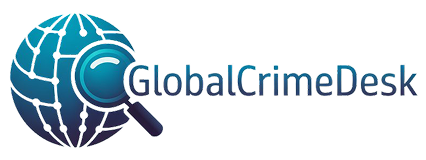Samsung yesterday posted results a little better than it forecast, and attributed some of its record revenue and strong profit to customers rushing to buy kit before the USA raises tariffs on imports.
Three weeks ago, the Chaebol predicted Q1 sales of ₩79 trillion ($53.75 billion) and ₩6. 6 trillion ($4.5 billion) in profit. It delivered ₩79.14 trillion ($54 billion) and ₩6.7 trillion ($4.7 billion).
Executive veep and CFO Soon-Cheol Park opened the company’s Q1 2025 earnings call with the observation “Recently, global trade tensions have led to a slowdown in growth and increased fluctuations in financial markets, raising concern with the performance of tech companies, especially in the semiconductor industry.”
He therefore expects Samsung will “encounter elevated uncertainties throughout the year.”
Samsung’s earnings call see divisional bosses each deliver a report. All riffed on Park’s warnings.
Executive vice president for memory Jaejune Kim said the company’s semiconductor division, for example, saw “robust demand for AI servers” and “preemptive purchasing activities after the pause on the reciprocal tariffs.”
Kim said demand for solid state disks used in servers “remained relatively weak following the previous quarter as some data center projects were delayed.”
That may concern those who see any slowdown in datacenter builds as an indicator that hyperscalers have paused spending due to uncertain returns from AI projects. Samsung also reported a quarter-on-quarter drop in demand for high-bandwidth memory, a key component of AI hardware.
Samsung’s explanation for that dip may soothe nervous AI investors as the Korean giant attribute it to export controls on AI chips kicking in – suggesting US bans on sales of GPUs to China appear to be working – and that customers decided to wait for next-gen HBM3E memory instead of buying slower kit now.
Kim said Samsung expects SSD sales to recover in Q2, and for memory sales to again be strong thanks to the AI boom and the debut of new processors that drive server sales. The exec also thinks the imminent end of support for Windows 10 will help Samsung by spurring new PC sales, and that the growing number of AI services for smartphones will also boost demand.
But he warned “as macro uncertainties such as the change of a tariff policy continue to expand, demand volatility is expected to be quite high accordingly.”
Samsung’s foundry services veep Mijung Noh expressed similar concerns, saying “short-term performance was negatively impacted by the ongoing U.S.-China trade tensions” and warning “ongoing uncertainties surrounding U.S. tariff policies continues to pose a potential risk of demand slowdown.”
The exec did have some good news in the form of Samsung getting closer to mass production of its two-nanometer gate-all-around process, and progress on Samsung’s second-gen two-nanometer process and the a four-nanometer process optimized for performance and power efficiency.
The bosses of Samsung’s display and smartphone businesses also warned of tariff-driven economic volatility perhaps denting sales, although the smartphone biz is also coming off a sales spike caused by the January launch of the flagship Galaxy S25 range.
Veep for mobile experiences Daniel Araujo also teased a new smartwatch boasting “enhanced health-related features” and a new entry-level model, plus an AI-infused Galaxy Tab. Asked if Samsung would follow Huawei by creating a tri-fold phone, Araujo said: “We are reviewing products with new form factors with a focus on securing a meaningful competitive advantage in performance and quality.”
CFO Park also teased some new products,
“For robotics in particular, we are sparing no efforts to outpace peers by advancing both hardware and software through internal development and external partnerships,” he said. AI is another focus.
Samsung will use both technologies in-house “to improve operational efficiency”. ®

